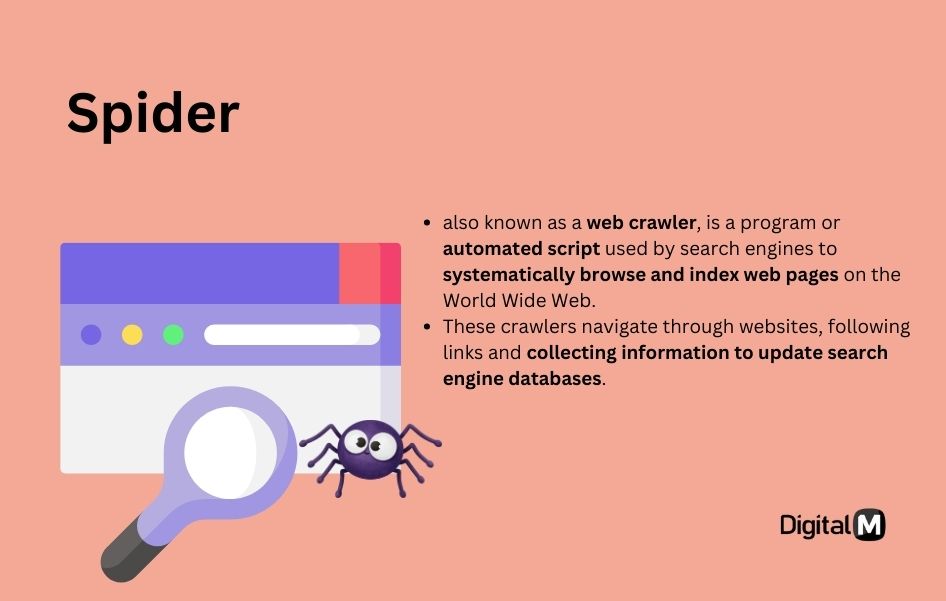Spider
In the context of the internet and search engines, a spider, also known as a web crawler, is a program or automated script used by search engines to systematically browse and index web pages on the World Wide Web. These crawlers navigate through websites, following links and collecting information to update search engine databases.
Think of a spider as a diligent explorer that goes through the entire web, visiting websites and collecting information to help search engines provide accurate and up-to-date search results.

Key Points:
Indexing: Spiders index web pages by analyzing their content and structure, creating a database that search engines use to respond to user queries.
Link Following: Spiders follow hyperlinks on web pages to discover new content and navigate through websites.
How Spiders Work:
Starting Point: The spider begins at a seed URL, often provided by the search engine’s algorithm or based on its previous indexing.
URL Extraction: The spider extracts URLs from the initial page and adds them to a queue for further exploration.
Page Download: It downloads the HTML content of each page, analyzing text, tags, and links.
Link Extraction: The spider identifies hyperlinks on the page and adds them to the queue for future crawling.
Repeat Process: The process continues recursively, allowing the spider to explore and index a large number of pages.
Robots.txt File:
Websites can use a “robots.txt” file to give instructions to spiders, specifying which pages should not be crawled or indexed.
Crawl Frequency:
The frequency with which spiders crawl a website depends on factors like the site’s authority, content freshness, and update frequency.
Examples of Web Crawlers:
Googlebot: Used by Google to index web pages for its search engine.
Bingbot: Used by Bing, Microsoft’s search engine, for similar purposes.
Yandex Bot: Used by the Yandex search engine, particularly in Russia.
Why it Matters:
Search Engine Indexing: Spiders play a crucial role in indexing web pages, making information accessible through search engines.
Fresh Content Discovery: Regular crawling allows search engines to discover new and updated content.
Search Result Accuracy: Effective crawling ensures that search engine results reflect the most relevant and recent information available on the web.
In summary, a spider, or web crawler, is a program that systematically navigates the World Wide Web, visiting web pages, and collecting information for search engines to index. This process is fundamental to the functioning of search engines, ensuring that users receive accurate and up-to-date search results.

